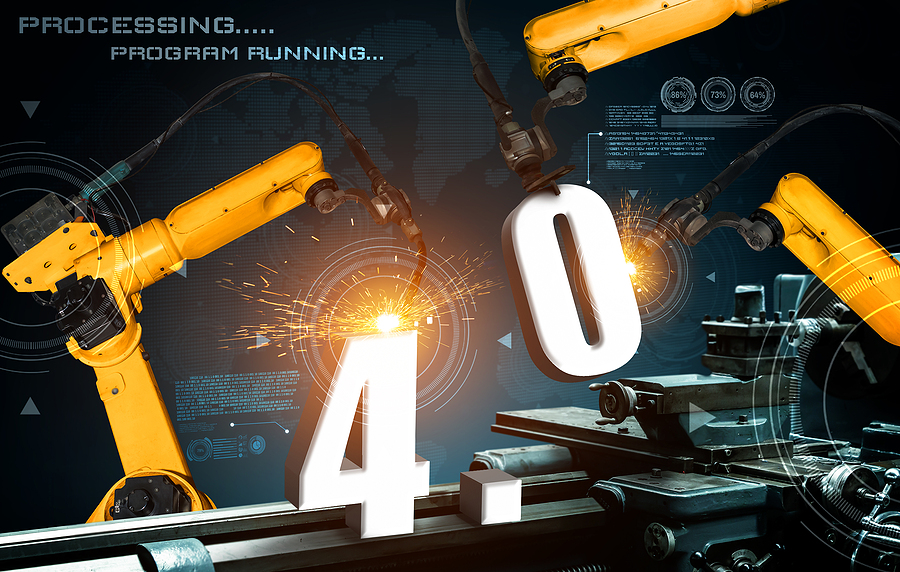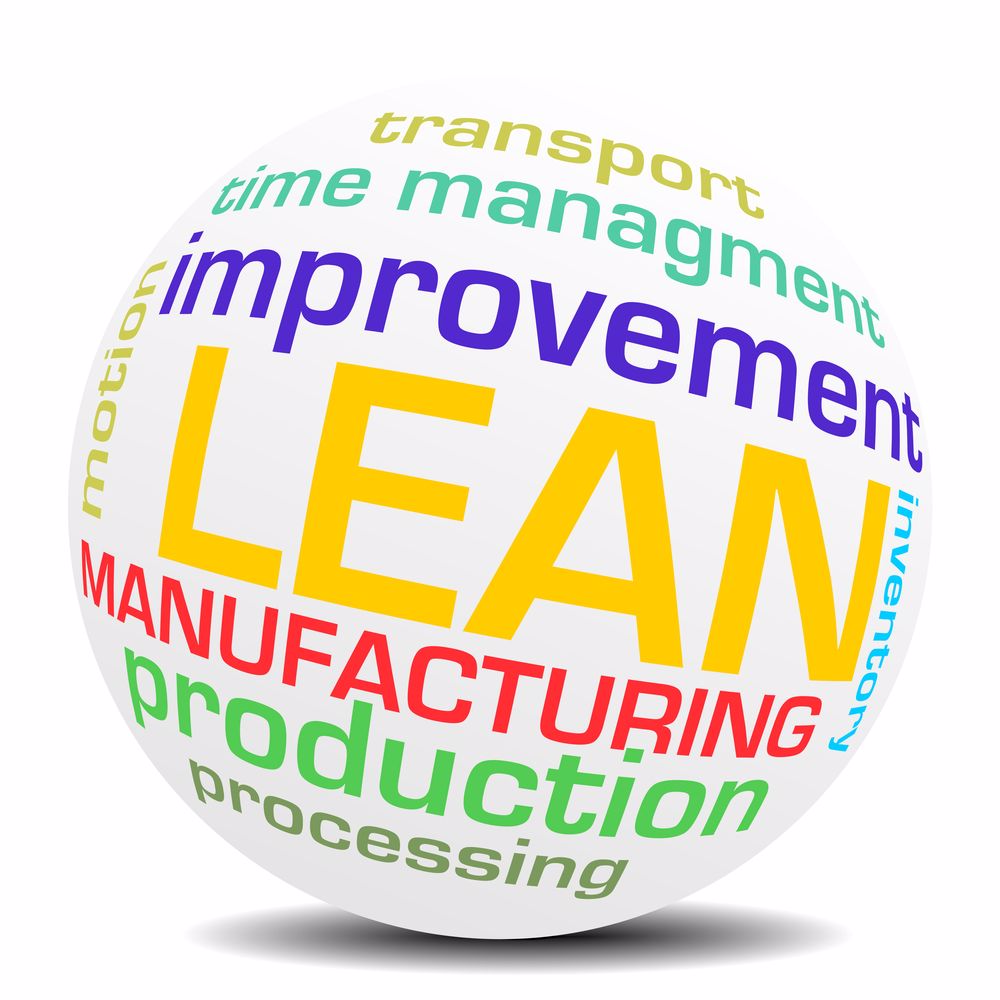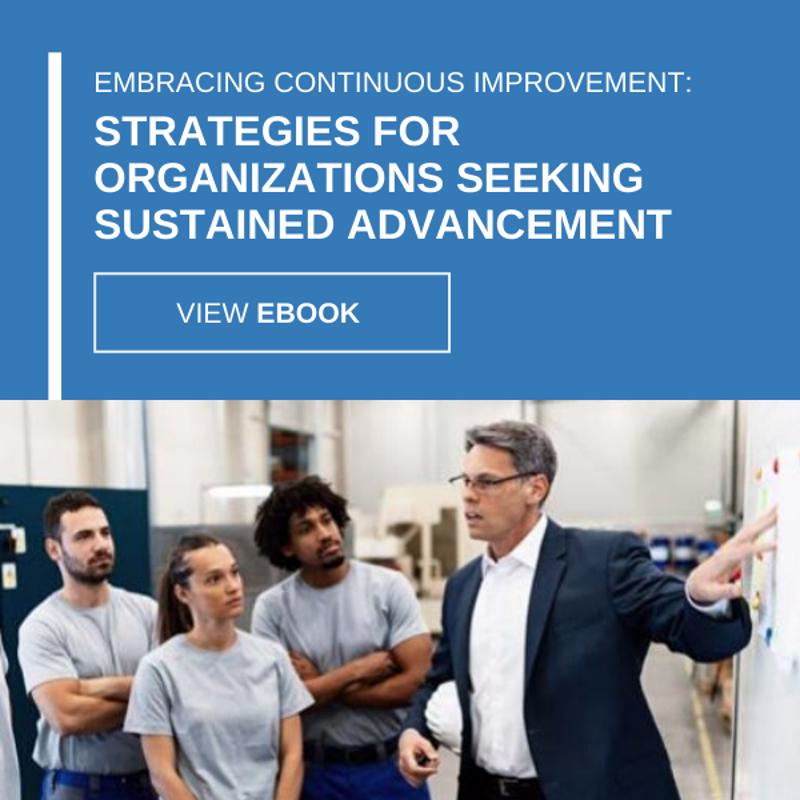
Are Industry 4.0 and Lean Manufacturing Mutually Exclusive?
Lean manufacturing and Industry 4.0 are in some ways a case in contrasts. The former is a production methodology designed to reduce operational costs through a combination of process efficiencies, a lighter footprint and smart time management. In short, it’s a system of minimizing waste and maximizing productivity through the barest of essentials. According to a recent research report spearheaded by IndustryWeek, lean manufacturing systems is a major priority among manufacturers in the U.S. today, behind only quality management systems.
Industry 4.0 is next-generation technology, which relies heavily on state-of-the-art equipment, tools, data, and analytics to make automation possible. Here, it’s out with the old and in with the new, made possible by investing in industrial practices and smart technology that expedite production and reduce human error. Often, it’s assumed that Industry 4.0 can replace the human element altogether.
So if lean manufacturing aims to reduce operational expenses, while Industry 4.0 typically requires added spending, are the two mutually exclusive? Not necessarily. It is possible for them to coexist when Industry 4.0 tech is leveraged strategically as a supplement to, not a replacement for, your staff.
Originally appearing in the Lean Enterprise Institute’s blog Lean Post, a classic case in point is a company called Denso, which since its inception, has tried to prioritize its people first and foremost. But the company is now also taking advantage of technology to augment their workers’ ongoing performance.
Must be purposeful about IoT utilization
Headquartered in Japan, Denso specializes in automotive components and is perhaps best known for being Toyota’s largest parts supplier. Many companies these days are using the Internet of Things (IoT) technology to improve processes and enhance output. But as Denso North American Production Innovation Center Vice President Raja Shembekar discovered, IoT is all too frequently not put to its full or proper use. In other words, without proper planning, it has no real problem-solving application, at least among the competitors he observed.
Not being strategic and intentional about IoT implementation — and how it can support workers on the shop floor — raises the risk of not obtaining the intended result: improving output, quality, or ideally both.

You can stay lean and leverage Industry 4.0 technology all at once.
“Not being strategic and intentional about IoT implementation — and how it can support workers on the shop floor — raises the risk of not obtaining the intended result.”
Concerned that Denso could fall into this tech trap, Raja built a small team composed of quality assurance managers and IoT aficionados to identify where production shortcomings existed and how, if at all, IoT capabilities could potentially fill in the gaps. They found just the thing by placing tiny sensors on cooling fans, which are used to maintain the temperature of brazing ovens for producing aluminum heat exchangers. The placement of said sensors on the fans enabled maintenance workers to swap out fans before they broke, forestalling production issues and avoiding lengthier timelines for parts to be ready for sale.
In short, IoT was able to provide workers with the insight and intelligence they needed to take action as it pertains to installation, supporting their roles. Raja noted that the maintenance team was skeptical about the sensors accurately forecasting when the fans would fall apart, but they played along.
“They took the fan out [and] the blades on the fan had disintegrated,” Raja recounted. “They were totally shocked that they had no idea this was happening and we could provide that prediction.”
As noted by Manufacturing.net, there is a risk in jumping aboard the Industry 4.0 bandwagon, simply because it’s the “in” thing to do. Organizations must first assess what their problems are and whether Industry 4.0 investments can actually solve those issues. This requires a complete assessment of current business processes as they exist and what desired outcomes are if they’re not being realized. Additionally, if Industry 4.0 can optimize the supply chain, as an example, manufacturers must make certain that their supply chain infrastructure can support the adjustments or installations that game-changing technology may entail.
Another way for lean manufacturing and Industry 4.0 to be cohesive is by getting to the bottom of the following question: Does the adoption of machine learning, IoT or some other form of computer-integrated technology supplant or support your team?
Workers expect job losses from AI, just not theirs
The answer will differ for everyone, but what is known is today’s workforce has a love-hate relationship with artificial intelligence. In a 2018 survey conducted by Gallup, approximately 75% of respondents said they anticipate more jobs will be lost than created as a result of AI’s increased adoption. However, only about 1 in 5 — 23% — were worried that their own job was in jeopardy.
While the increased implementation of AI has led to job losses, whether it does or not depends on management philosophy, according to the Lean Enterprise Institute’s blog. A mechanistic approach to business decisions relies heavily on technology, sometimes to the exclusion or replacement of actual workers. From an organic-systems perspective, however — which Raja ascribes — tech takes a backseat to employees who are on the front lines of warehouses, factory floors, and assembly lines.
“Technology provides data that allows the associate and the team leaders at the gemba [factory floor] to provide a far higher level of decision making,” Raja told the Lean Post.
Raja went on to state that at Denso, the addition of Industry 4.0 tech has helped workers make smarter, more well-informed decisions about how to continuously improve and enhance production through PDCA, meaning “Plan-Do-Check-Act.” The goal at Denso is always to leverage tech so it provides work crews with actionable information about the current systems in place so they can react accordingly, not to take those decisions away from them. As Manufacturing.net recommended, it may be worthwhile to perform trial runs of innovative technology to see if it supports or supplants your workforce and where adjustments can be made. In essence, better to “try before you buy.”
For optimal gains when marrying Lean philosophies and Industry 4.0 principles, utilizing an operations management firm may be best. USC Consulting Group has the expertise and experience to help you achieve results by leveraging your existing technology and ensuring that it aligns with your manufacturing philosophy. Please contact us today to learn more about our offerings and how we may be able to help.







